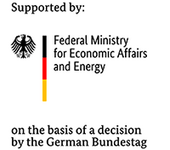Within the framework of the research project "AI-supported assistant for interior development" (KAI), a development tool is to be created that uses AI methods to support the developer in the development process in such a way that concepts of high quality can be created and evaluated more quickly. This assistant is intended to counteract the increasing product and process complexity in that it interacts with the user during development and visualises and optimises complex tasks during design via a simple interface. This allows the user to concentrate more on the technical and creative parts of the engineering activities.
The goal of KAI is to develop concrete AI tools for three core innovations for interior space development. The first innovation is the extended capture and mapping of the heterogeneous requirements for interiors of partially automated vehicles using an extended dynamic human model. The second innovation is an AI tool for the targeted optimisation of interior design and construction. Thirdly, the focus is on early virtual pre-assessment from a user and technology perspective. These three research focuses serve to increase the effectiveness and efficiency of vehicle interior development in the sense of the "next best action". To this end, AI tools are being defined, developed, tested and validated as examples within the framework of KAI.
In the KAI project, ASR contributes its expertise in the field of modelling and evaluating human movements in simulated 3D scenarios, which have been or are being investigated in the INTERACT, MOSIM and AIToC projects. Within the framework of these projects, deep-learning approaches for the evaluation and optimization of interior spaces were explored, especially regarding the movements of vehicle occupants.
Partners
CanControls GmbH, Human Solutions GmbH, Saint-Gobain Performance Plastics Pampus GmbH, Saint-Gobain Sekurit Deutschland GmbH & Co. KG, soft trim seating sts GmbH, Institut für Kraftfahrzeuge der RWTH Aachen University (ika)

